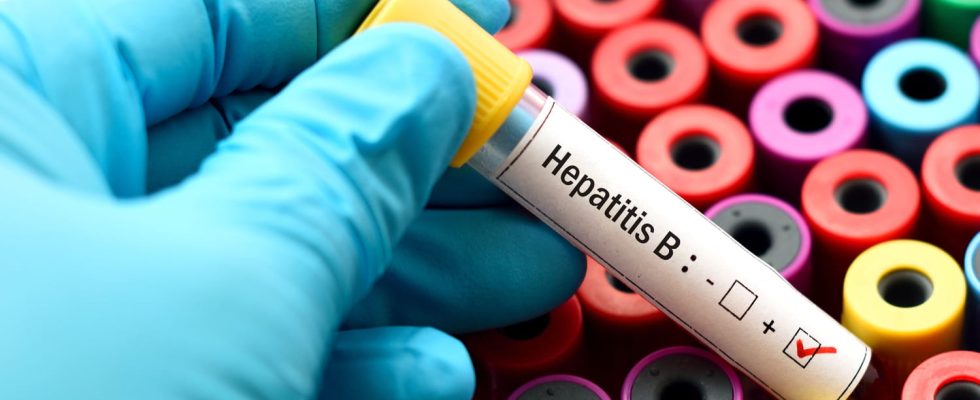Anti-HBs antibodies are present in the blood after being exposed to the hepatitis B virus, or having received vaccination against this virus. What does a positive result mean? How to interpret it?
Definition: what are anti-HBs antibodies?
THE anti-HBs antibodies are produced by the body and directed against HBs antigen, antigen which constitutes the envelope of the hepatitis B virus; they are capable of neutralizing this virus and therefore preventing the infection from multiplying. When anti-HBs antibodies are present in the blood, the person is considered cured or protected against hepatitis B. This means that they cannot infect another person. When a person has had hepatitis B, they are immune for the rest of their life. People who have contracted hepatitis B, even if they have recovered, cannot donate blood. On the other hand, those who have been vaccinated do not have any contraindications. In nine out of ten cases, adults infected with hepatitis B do not experience any symptoms. The best protection remains the vaccine which has been compulsory since January 1, 2018. before the age of 18 months. “It must be remembered that the carrier of the hepatitis B virus is very contaminating hence the need to be vaccinated” warns Dr. François Blanchecotte, biologist.
The search for anti-HBs antibodies is carried out using a blood test and a biological assay. It is generally prescribed to diagnose liver inflammation, check serological status, i.e. check whether vaccination against hepatitis B is always effective or as part of the monitoring of patients infected with the hepatitis B virus.
What are the standards for anti-HBs antibodies?
If the concentration of anti-HBs antibodies is greater than or equal to 100 IU/lthe person is considered to be protected against hepatitis B : it is not necessary to carry out a subsequent serological test or to administer another dose of a hepatitis B vaccine.
What does a high level of anti-HBs antibodies mean?
If the result notes an anti-HBs level greater than 10 IU/l then it is possible that the patient was previously infected with the hepatitis B virus. This rate also appears following vaccination (up to 6 months). “Other antibodies must be tested to determine the patient’s serological status. says Dr. Blanchecotte.
What does a low level of anti-HBs antibodies mean?
If anti-HBS antibodies are less than 10 IU/l although the vaccination schedule is complete, it is not certain that the person will be protected: one to three additional injections, with dosing of anti-HBs one to two months after the injection, may be administered. “It may not respond to vaccination by producing antibodies that are not detected” specifies the biologist.
Anti-HBs and hepatitis B antibodies
The hepatitis B virus is responsible for acute or sometimes chronic hepatitis (in 5 to 10% of cases), which can lead to cirrhosis or liver cancer. It can be transmitted by sexual relations, contact with blood, transmission from mother to the child at the time of childbirth or within families or communities through saliva, small wounds or the sharing of personal objects (razor, toothbrush, etc.). Following exposure to the virus, HBs antigen appears after several days to several weeks. Its presence for at least 6 months indicates a chronic form of hepatitis B.”There are cases of death in 1 case per 1000 contaminations” notes the biologist.
Thanks to Dr François Blanchecotte, biologist and President of the Union of Biologists (SDBIO).
